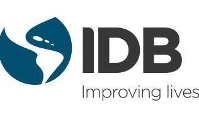|
From:TheBahamasWeekly.com News
In 2011, the UNISDR’s Global Assessment Report concluded that “aside from reducing disaster mortality, existing risk governance capacities and arrangements generally fail to achieve their aims.” This observation, in tandem with the continued escalation in losses by increases in exposure and vulnerability to hazards, has intensified global and regional discourses on the status of risk governance. In 2012, IDB developed the Index of Governance and Public Policy for Disaster Risk Management (iGOPP), which was intended to advance in the understanding and evaluability of risk governance, to undertake research consistent with IDB’s policies, and to generate knowledge. iGOPP has been designed to evaluate the formal, and therefore provable, existence of a series of legal, institutional, and budgetary conditions that are fundamental, so that Disaster Risk Management processes can be implemented in a specific country. To date, the iGOPP has been applied in 25 countries. The index objectively appraises the existence of formal public policies, legal instruments, institutional and budgetary conditions relating to all facets of disaster risk management including: general risk governance, risk identification, disaster preparedness and response, risk reduction, recovery planning and financial protection. iGOPP is not a performance measurement or state of national readiness index. iGOPP measures the extent of and/or gaps in formal existing policies, legal instruments, institutions and budgetary conditions required to implement disaster risk management, optimally. iGOPP is a tool to facilitate sector dialogue, to identify areas to further strengthen and optimize DRM in Latin America and the Caribbean countries, and to uniformly baseline and measure policy, legal, institutional and budgetary environment improvements over time, across countries. The first iGOPP report completed for The Bahamas, was based on information collected during the period from April to October 2017. Amongst its summary key findings, the report:
Since the completion of the iGOPP assessment, the IDB has approved a Contingent Credit Facility for Natural Disaster Emergencies in June 2018, an intervention that will further improve the Bahamas’ fiscal stability in the aftermath of natural disasters. As part of this, the Government has conditionally committed to further the Bahamas’ Comprehensive Disaster Risk Management Agenda in respect of: developing island evacuation plans; strengthening storm surge and hurricane monitoring systems; strengthening emergency communication systems; strengthening relief supply and distribution logistics and improving sensitization about personal preparedness and self-care. Notably, the Government of The Bahamas - with the support of the IDB -- is also undertaking a multi-hazard risk profile, to identify likely future exposures and probable losses to hazard events. This is expected to guide decision-making on the need for future resilience building projects. The IDB further anticipates, that as the Climate Resilient Coastal Management and Infrastructure Program gets underway – to be executed under the leadership of the Bahamas’ Ministry of Public Works and in collaboration with the Ministry of the Environment and Housing – The Bahamas’ future performance on risk reduction aspects of DRM will continue to improve. The IDB considers the development and application of The Bahamas iGOPP results as a positive step, i.e. as a research tool to generate new knowledge that aims at helping the country to identify critical gaps in this important area; and notes the continued, evident and ongoing commitment of the Government of The Bahamas to address such gaps.
Authored by Pedro Martel, Division Chief of the Natural Resources Division at the Inter-American Development Bank (IDB) in Washington DC, and Michael Nelson, IDB Chief of Operations and Acting Country Representative in The Bahamas.
|
